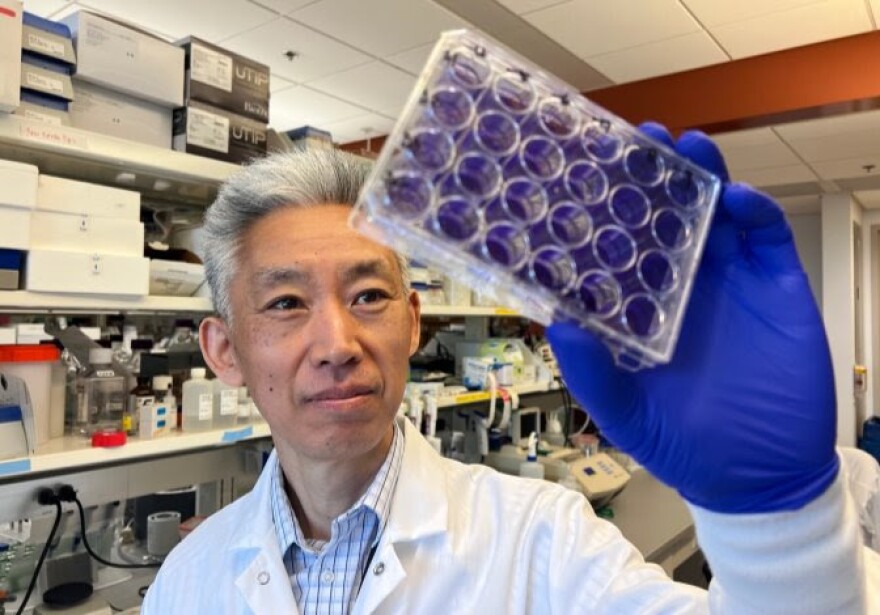The National Institutes of Health has awarded $3.7 million to a team of researchers from the University of Louisville to fight future pandemics.
The U of L team, led by infectious disease researcher and associate professor Donghoon Chung, will form part of the newly-created NIH Midwest Antiviral Drug Discovery (AViDD) Center for Pathogens of Pandemic Concern.
The NIH created nine such centers across the U.S. earlier this year, allocating a total of $577 million. The Midwest AViDD center is led by the University of Minnesota.
Chung said the next pandemic is likely to be caused by a variant of an existing virus, but it’s difficult to predict which one. That’s why different teams will study a wide variety of diseases.
“When the next pandemic happens we can have a lot of potential therapeutic candidates that are available,” Chung said.
Chung’s group at U of L will focus on developing new antivirals for the Zika virus, and for SARS-CoV-2 — the virus responsible for COVID-19.
The team has already found a promising weakness to exploit in these viruses — a protein in their RNA, or genetic structure, known as viral helicase. Chung said RNA viruses are somewhat like copy machines, and viral helicase is what allows the machine to release the copy.
By creating therapies that target viral helicase, scientists can block RNA viruses from replicating in the body.
“We want the copy machine jammed,” Chung said.
Viral helicase is also a good part of the virus to target, Chung said, because it doesn’t mutate as often as other parts of the virus. That means treatments aimed at viral helicase should work for many variants.
Scientists involved in the NIH initiative are studying several diseases. Chung said he wanted to focus on Zika because the consequences can be so devastating for babies who develop microcephaly as a result of contracting the virus as fetuses in the womb.
“Also, we are very much concerned about climate change,” Chung said. Zika is carried by mosquitoes, and as the earth warms, mosquito populations are growing and expanding their geographic range.
Chung said he expects the antivirals he develops for Zika will also be effective against other viruses.
He will work with U of L’s Center for Predictive Medicine, which has one of the few biocontainment laboratories in the country.
The $3.7 million grant will fund the first three years of the five-year grant. The NIH will review the team’s work before allocating funding for the final two years.


